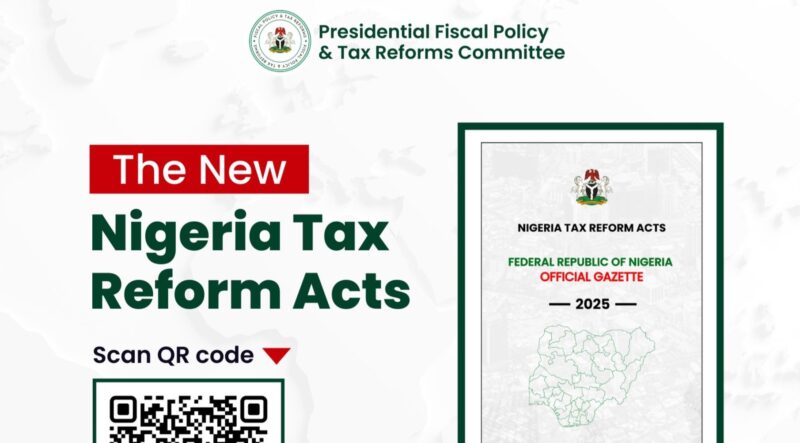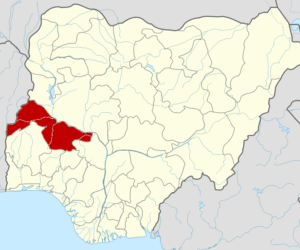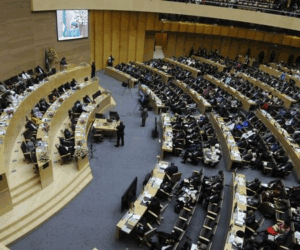Nigeria’s tax reform laws, which were enacted in June, have been published in the official gazette, Taiwo Oyedele, the chair of the Presidential Committee on Fiscal Policy and Tax Reforms, stated in a post on X (formerly Twitter) on Monday.
The new tax laws consolidate the Nigerian Tax Act (NTA), the Nigerian Tax Administration Act (NTAA), the Nigerian Revenue Service (Establishment) Act (NRSEA) and the Joint Revenue Board (Establishment) Act (JRBEA) into a single document for efficiency and ease of reference.
The NTA and NTAA will become operational on 1 January 2026, while the NRSEA and the JRBEA have a commencement date of 26 June 2025.
Completing a major overhaul of its tax system this year marked a major progress for Nigeria, which lately has been stepping up efforts to boost its tax-to-GDP ratio, one of the lowest in the world.
Tax as a share of GDP rose few months back to 13.5 per cent from roughly 10.8 per cent about three years ago. That compares to South Africa’s 24.5 per cent and an African average of 16 per cent.
One of the key achievements of the reforms was ridding the system of some obsolete tax rules dating back to the British colonial era, many of which have long impeded growth, in a bid to make the economy more competitive and the system less opaque.
Nigeria collected over sixty taxes and levies that contributed little to the treasury under the former regime, during which limitations like multiple taxation and a complex collection process deterred investor.
The country’s tax gap, which indicates the difference between total taxes owed and total taxes collected, is currently about 70 per cent, Mr Oyedele said.
The new laws exempt small companies, whose annual turnover is N100 million or less and total fixed assets valued below N250 million, from tax.
There are also “provisions to enable the reduction of tax rate from 30 per cent to 25 per cent for large companies effective from a date as may be determined in an Order by the President on the advice of the National Economic Council,” Mr Oyedele said.
Under the new law, qualified priority sector investments will enjoy a tax credit at the rate of 5 per cent per annum as an economic development incentive.
There is now an option to pay taxes on foreign currency transactions in the local currency at the prevailing exchange rate.
Nigeria’s tax collection for the six months to June stood at N14.3 trillion, 43 per cent higher than the figure for the same period of last year, and more than half its target for the whole of 2025, the government disclosed in July.










